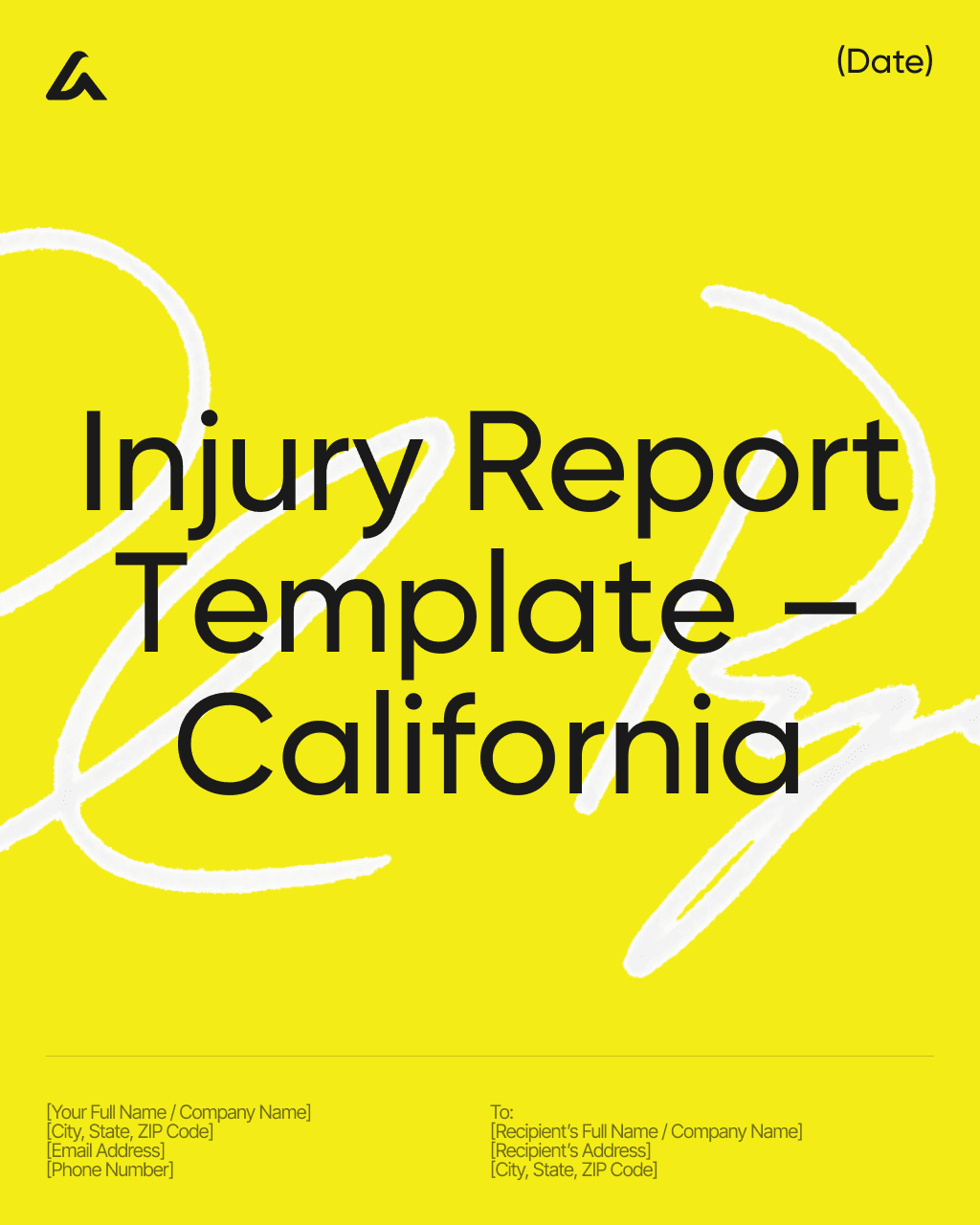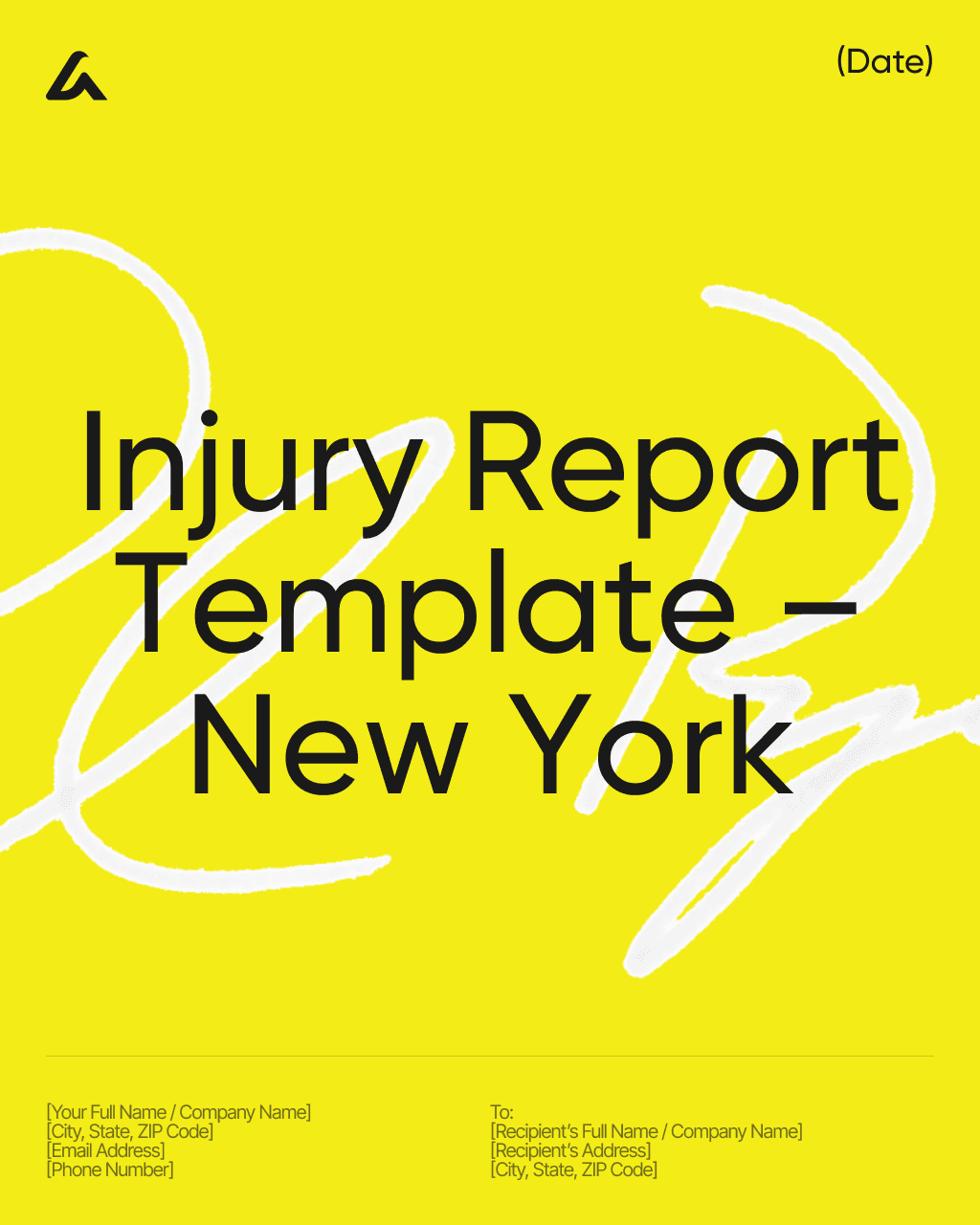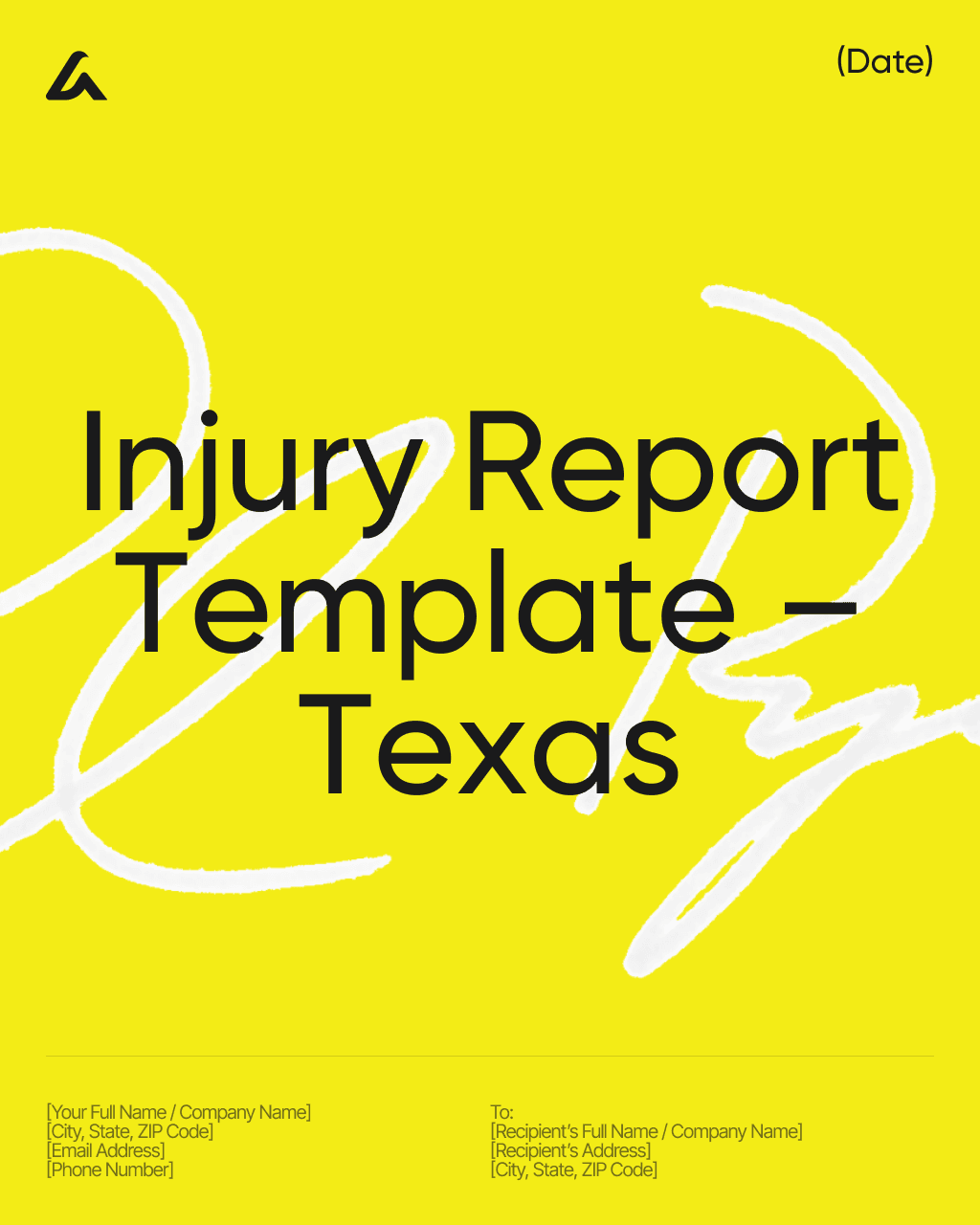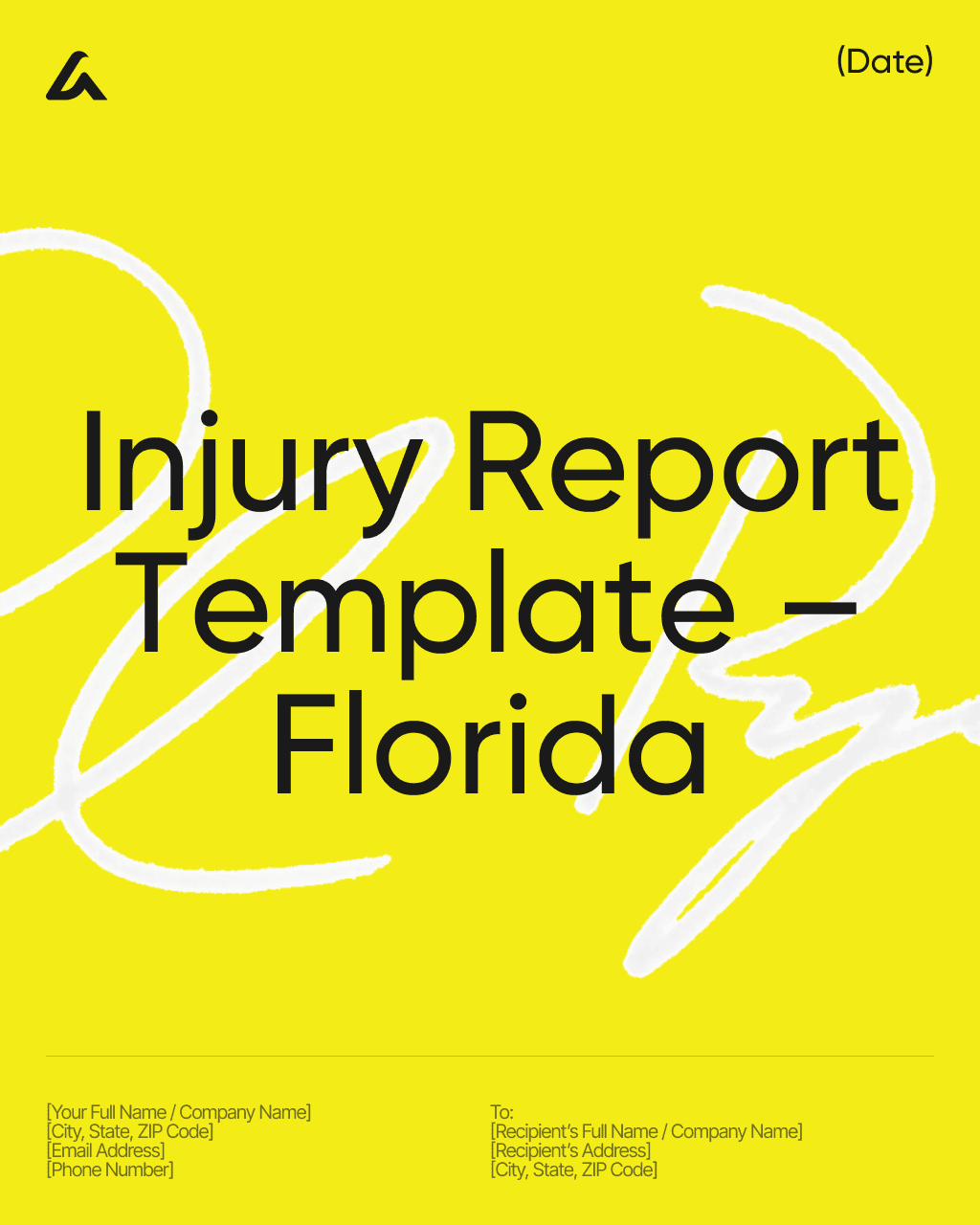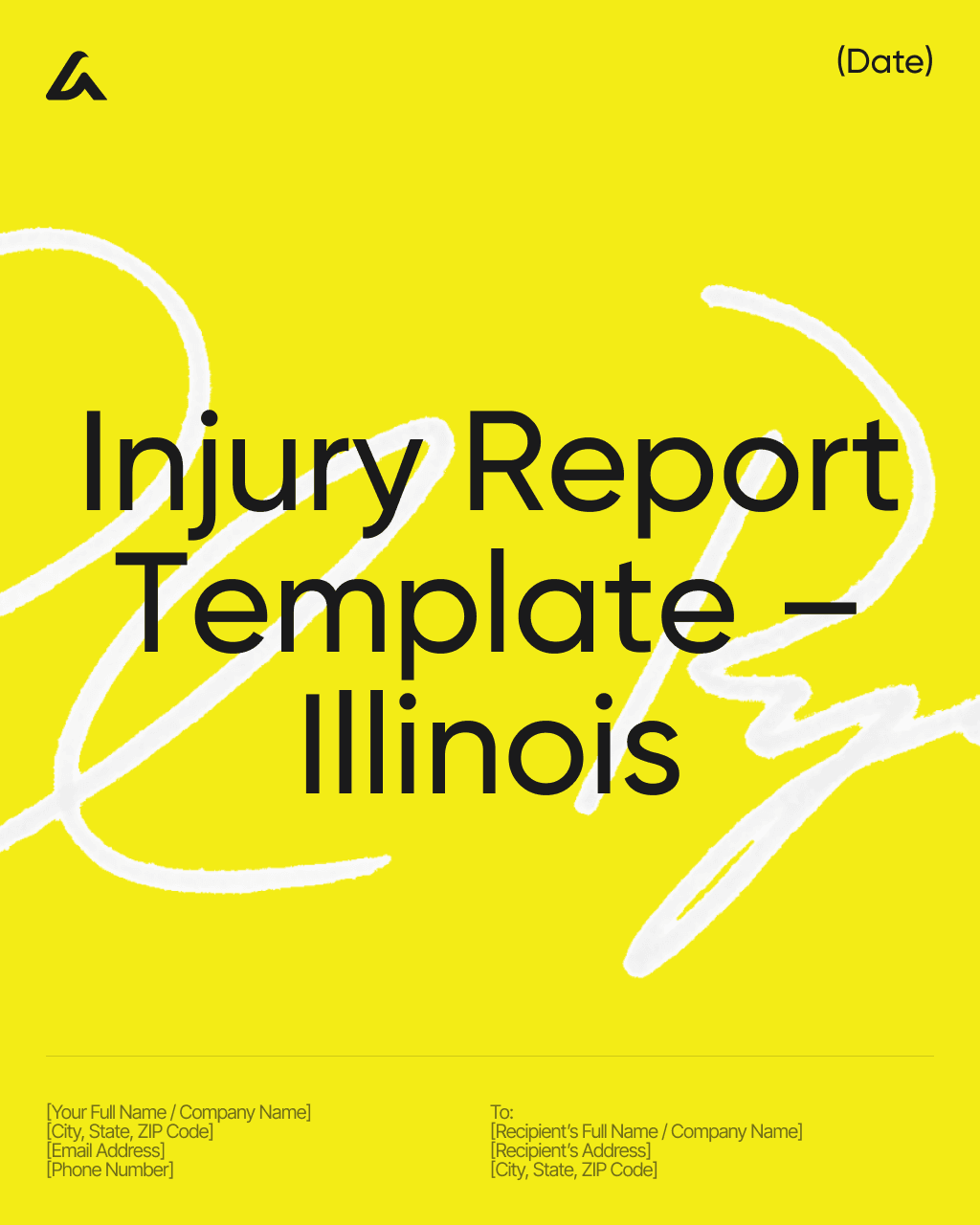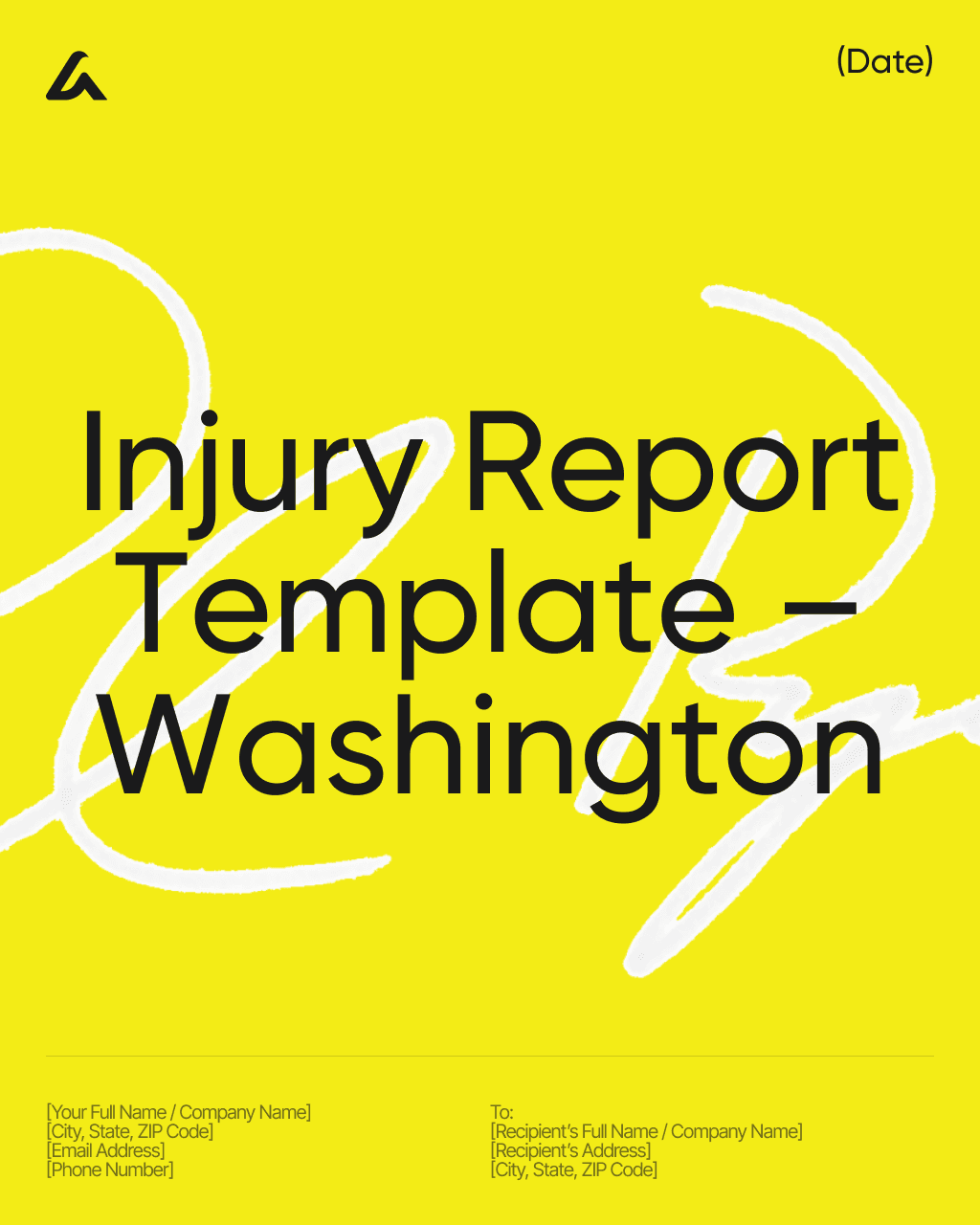Free template
Personal Injury Retainer Agreement Template: Fees & Scope of Work
Draft your custom agreement in seconds with AI Lawyer
Download template
Personal Injury Retainer Agreement Template
This Personal Injury Retainer Agreement (“Agreement”) is made between:
Law Firm:
[Law Firm Name]
[Street Address]
[City, State/Province, ZIP/Postal Code]
Phone: [Phone Number]
Email: [Email Address]
and
Client:
[Client Full Name]
[Street Address]
[City, State/Province, ZIP/Postal Code]
Phone: [Phone Number]
Email: [Email Address]
1. Case and Parties
1.1 Matter Description
Client retains Law Firm to represent Client in connection with personal injury claims arising from the incident that occurred on or about:
Date of Incident: [MM/DD/YYYY]
Location of Incident: [City, State/Province, brief description]
Type of Incident (check as applicable):
Motor vehicle accident (may include DUI-related crash)
Slip-and-fall / trip-and-fall
Premises liability incident
Workplace or job-related accident
Other personal injury: [Describe]
1.2 Opposing Parties
To the extent known at this time, the adverse party or parties include:
[Name(s) of at-fault individual(s), business, insurer, or “Unknown at this time”]
2. Scope of Representation
2.1 Included Services
Law Firm agrees to provide legal services reasonably necessary to investigate, present, and pursue Client’s personal injury claim related to the incident described above. This may include, as appropriate:
Communicating with insurance companies and adverse parties
Collecting medical records, bills, and other evidence
Evaluating settlement offers and negotiating resolution
Preparing and filing a lawsuit, if agreed and appropriate
Representing Client at hearings, mediations, and settlement conferences
Trying the case in court if necessary and agreed
2.2 Excluded Services
Unless specifically agreed in writing, this Agreement does not require Law Firm to:
Handle appeals after judgment or post-judgment proceedings
Handle unrelated matters (criminal, family, bankruptcy, tax, or other legal issues)
Provide financial, tax, or investment advice
Any additional or separate legal matters will require a new written agreement or an amendment to this Agreement.
3. Contingency Fee Arrangement
3.1 Fee Based on Recovery
Client agrees that Law Firm’s fee for legal services will be a contingency fee, calculated as a percentage of the gross amount recovered (by settlement, judgment, or otherwise), before deduction of case expenses unless otherwise stated below.
Unless prohibited or modified by applicable law, the contingency fee will be:
[___]% if the case is resolved before a lawsuit is filed; and
[___]% if the case is resolved after a lawsuit, arbitration, or formal proceeding is filed; and
[Optional] [___]% if the case proceeds to trial or appeal.
3.2 No Fee if No Recovery
If there is no monetary recovery for Client, Law Firm will not charge a fee for legal services. Treatment of expenses and costs in the event of no recovery is addressed in Section 4.
3.3 Compliance with Law and Ethics Rules
The contingency percentages and fee calculation method may be subject to specific limits or requirements under the laws and professional conduct rules of the jurisdiction where the claim is pursued. Law Firm and Client agree that this fee arrangement must comply with all applicable rules, and any required notices or disclosures will be provided.
4. Costs and Expenses
4.1 Types of Case Expenses
In handling the case, Law Firm may incur expenses, including but not limited to:
Court filing fees and service of process
Costs for medical records, bills, and reports
Expert witness fees and investigator fees
Deposition, transcript, and court reporter charges
Mediation or arbitration fees
Travel, postage, copying, and similar costs
4.2 Advancing Expenses
Check one option (to be completed and initialed by the parties):
Option A – Law Firm Advances Costs, Reimbursed Only from Recovery.
Law Firm may advance reasonable case expenses on Client’s behalf. If there is a recovery, those expenses will be reimbursed to Law Firm from the recovery, in addition to the contingency fee. If there is no recovery, Client will not be obligated to reimburse Law Firm for advanced costs, except as allowed or required by local law.Option B – Law Firm Advances Costs, Client Ultimately Responsible.
Law Firm may advance reasonable case expenses on Client’s behalf. Regardless of outcome, Client remains ultimately responsible for reimbursing Law Firm for all advanced costs, subject to applicable law and ethics rules.Option C – Client Pays Costs Directly.
Client will pay case expenses directly as they are incurred (for example, paying for records, expert fees, or filing fees directly to the provider or court).
4.3 Order of Payment from Recovery
Unless otherwise required by law or lien priority, any recovery will typically be disbursed in this order:
Payment of court-approved or required liens and obligations (if any)
Reimbursement of case expenses as described above
Payment of Law Firm’s contingency fee
Payment of the remaining balance to Client
5. Client Responsibilities
Client agrees to:
Provide complete and truthful information about the incident, injuries, and prior medical history
Promptly inform Law Firm of any new medical treatment, changes in condition, or address/phone/email changes
Attend scheduled medical appointments, evaluations, and court appearances
Preserve evidence, photos, documents, and communications related to the case
Not communicate directly with adverse insurers or parties about settlement without first consulting Law Firm
Review important documents and cooperate reasonably with requests for information or signatures
6. Communications and Decision-Making
6.1 Attorney’s Duties
Law Firm will keep Client reasonably informed about significant developments, including material settlement offers, important deadlines, and major case strategy decisions.
6.2 Client’s Decisions
Client retains the final decision-making authority on:
Whether to accept or reject a settlement offer
Whether to authorize filing a lawsuit or proceeding to trial (after receiving advice)
Law Firm will provide advice and recommendations but cannot guarantee any particular result.
7. Liens, Bills, and Subrogation Claims
7.1 Medical Liens and Balances
There may be liens or outstanding balances from medical providers, health insurance, government programs, or others (for example, hospitals, health plans, or workers’ compensation carriers). Client authorizes Law Firm to:
Communicate with lienholders and medical providers
Request itemized statements and balances
Negotiate reductions or payment arrangements where appropriate
7.2 Payment from Recovery
Where required by law or contract, Law Firm may pay valid liens or claims from Client’s share of the recovery and will provide a settlement statement showing such payments.
8. No Guarantee of Outcome
Client understands and agrees that:
Law Firm has made no promises or guarantees about the amount of recovery or the outcome of the case.
All expressions about the case value or likely result are opinions only, based on information available at the time and subject to change.
Past results in other matters do not guarantee any similar outcome in this case.
9. File, Original Documents, and Records
9.1 Client Records
Client may request copies of documents in the file that belong to Client, consistent with law and ethics rules. Law Firm may retain copies for its records.
9.2 Original Documents
Original documents provided by Client (such as photographs, personal notes, or original receipts) will be returned upon request or at the conclusion of representation, subject to any lawful retention or lien rights.
10. Termination of Representation
10.1 Client’s Right to Terminate
Client may terminate this Agreement and Law Firm’s representation at any time, in writing. Law Firm may be entitled to a fee for services performed and reimbursement of expenses as permitted by law and ethics rules, including a lien on any recovery obtained after termination.
10.2 Law Firm’s Right to Withdraw
Law Firm may withdraw from representation with reasonable notice and, where required, court approval, if:
Client fails to cooperate or follow reasonable advice;
Client fails to remain in contact or to fulfill obligations under this Agreement;
There is a conflict of interest or other ethical reason; or
Other good cause exists under applicable professional rules.
10.3 Effect of Termination
Upon termination, Law Firm will take reasonable steps to protect Client’s interests, such as providing notice of deadlines known to Law Firm and, where appropriate, transferring the file to new counsel, subject to any rights to fees or liens permitted by law.
11. Governing Law and Entire Agreement
11.1 Governing Law
This Agreement will be governed by the laws and professional conduct rules of the jurisdiction where the primary legal services are performed, unless otherwise required by conflict-of-laws principles.
11.2 Entire Agreement
This Agreement contains the entire understanding between Law Firm and Client regarding this personal injury matter and supersedes all prior oral or written discussions about fees and representation. Any changes or amendments must be in writing and signed by both Law Firm and Client.
12. Acknowledgments
By signing below, Client confirms that:
Client has read this Agreement (or had it read and explained) and understands its terms.
Client has had the opportunity to ask questions and receive answers from Law Firm about this Agreement.
No promises or guarantees have been made other than those written in this Agreement.
Client understands that laws and ethical rules may limit or define how contingency fees and costs are handled, and that questions about those rules can be discussed with Law Firm or another independent attorney.
13. Signatures
Client
Client Name (print): _______________________________
Signature: ________________________________________
Date: ___________________
Law Firm
Law Firm Name: [Law Firm Name]
By (Authorized Attorney, print name): _______________________________
Signature: ________________________________________
Title: [Partner / Attorney / Other]
Date: ___________________
[Optional – Additional Client or Co-Client Signature Block]
Co-Client Name (print): _____________________________
Signature: ________________________________________
Date: ___________________
No time to fill it up? Generate your custom agreement with AI Lawyer in seconds
Details
Learn more about
Personal Injury Retainer Agreement Template: Fees & Scope of Work
PERSONAL INJURY RETAINER AGREEMENT TEMPLATE FAQ
What is a personal injury retainer agreement?
A personal injury retainer agreement is a written contract between a client and a law firm that explains what legal services will be provided, how fees and costs will be handled (often on a contingency basis), what the client’s responsibilities are, and when either side can end the representation. It helps both sides understand the terms of working together before a claim or lawsuit moves forward.
How does a contingency fee work in a personal injury retainer agreement?
In a typical personal injury case, a contingency fee means the law firm’s fee is a percentage of the money recovered by settlement or judgment. If there is no recovery, the attorney’s fee is usually not owed, although case-related costs may still be handled separately depending on the agreement and local rules. The exact percentage and treatment of costs must be clearly spelled out in the retainer agreement and must comply with applicable law and ethics rules.
What should a personal injury retainer agreement include?
A helpful personal injury retainer agreement usually includes: identification of the parties and case, the scope of representation, fee and contingency terms, how case expenses and costs will be handled, the client’s duties (such as providing information and staying in contact), communication practices, how liens and medical bills will be addressed, a no-guarantee clause, termination procedures, and signatures from both the client and the law firm.
Is a personal injury retainer agreement the same as legal advice about my case?
No. A retainer agreement is a contract that sets out how a law firm will represent you and how it will be paid. It does not replace personalized legal advice about the strength or value of your claim. Questions about your rights, deadlines, or strategy should be discussed directly with the attorney who is considering or accepting your case. Laws and ethics rules vary by jurisdiction, so this template must be reviewed and adapted by a licensed lawyer.
Can AI Lawyer help draft or customize a personal injury retainer agreement?
Yes. AI Lawyer can help you structure and customize a personal injury retainer agreement using clear, client-friendly language and organized sections based on your instructions. However, this template and any AI-generated content are for general document organization only and are not legal advice. A licensed attorney must review, adapt, and approve the final retainer agreement to ensure it complies with local law and professional conduct rules.
Similar templates






















































































